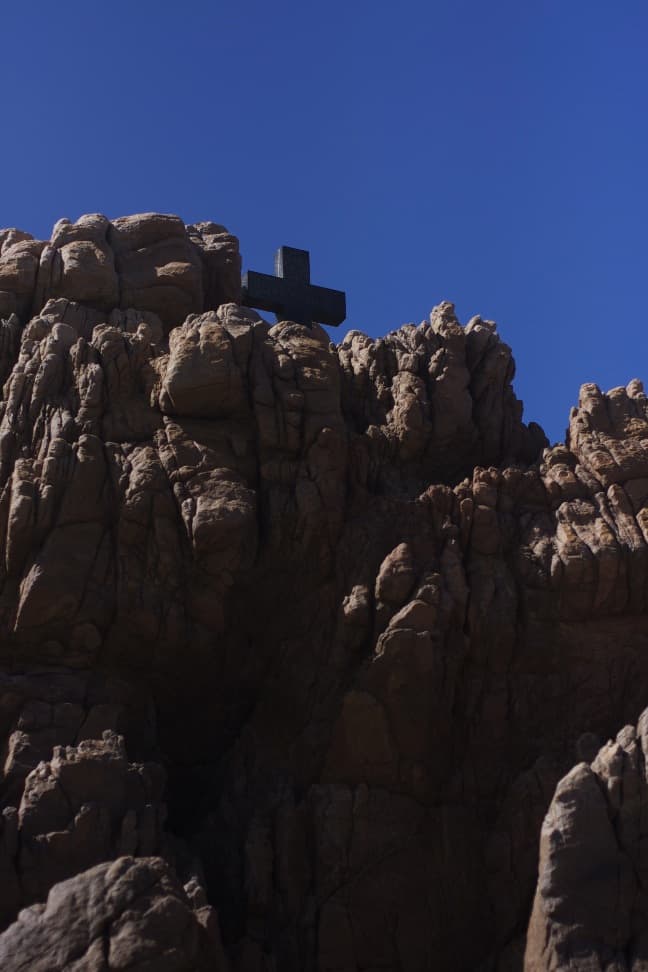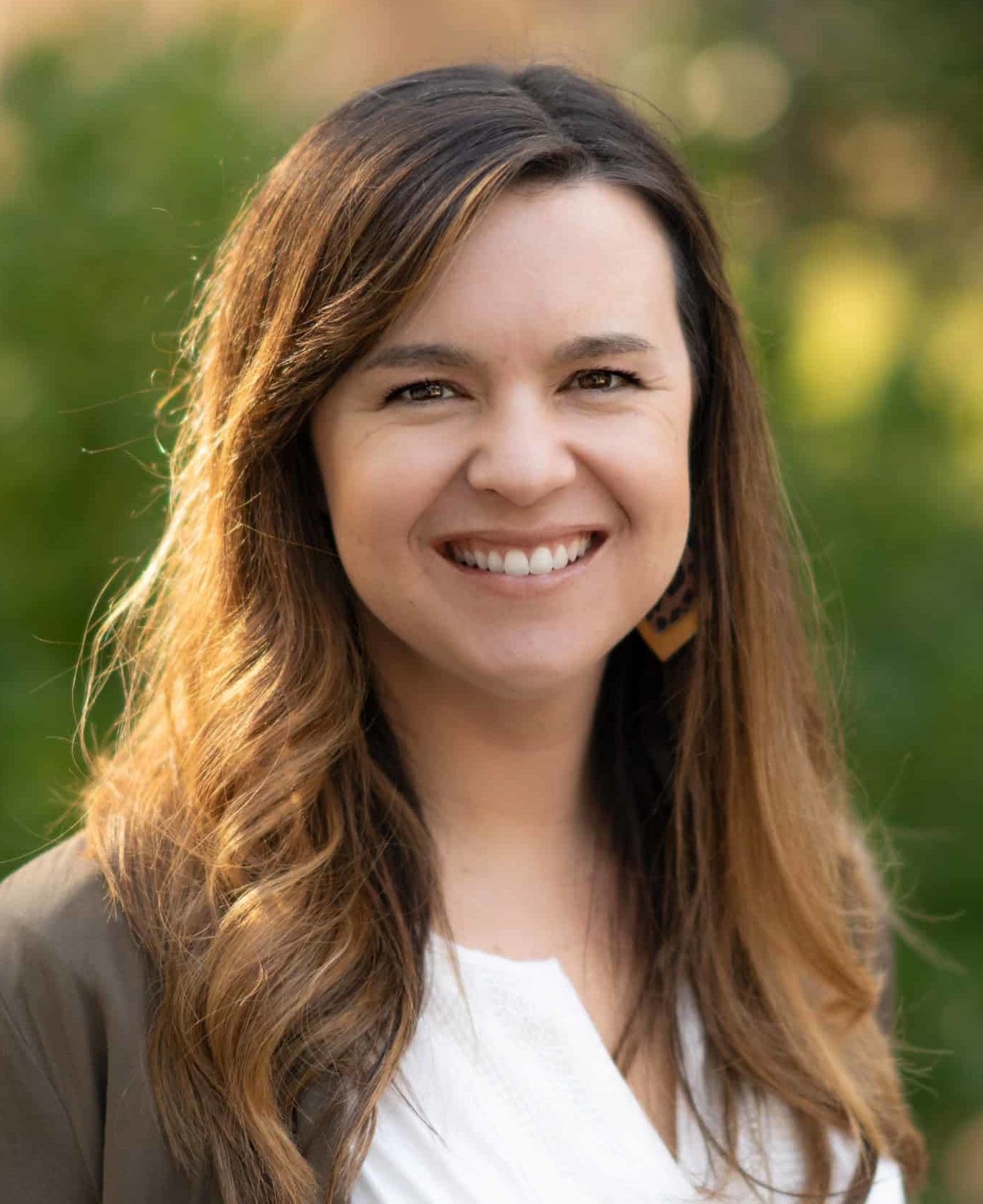It was just a few days before Lent – a season for Christians around the world to humble themselves, focus more deeply with a hope of understanding the message of the Cross – when a “Message Signed With Blood for the People of the Cross” went out. Twenty-one Egyptian Christians were beheaded in a mass killing, intended to be a message to Christians around the world.
Who are the people of the Cross?
When Jesus arrived on the scene some 2,000 years ago, He was rejected by Israel — the very nation He arrived to share the Good News with first.
Israel’s rejection of the Gospel was not a flippant “Mmmm… I don’t think I really like what this Jesus guy is saying” kind of response — His words and His ways were turning their worlds upside down and it was more than they could handle.
While the Jews saw riches as the blessing of the Lord, Jesus told the rich young ruler who approached Him to give it all away and follow Him to find eternal life. (Mark 10)

While the Jews had kept the Passover faithfully for more than a thousand years — this mark and preservation and remembrance of their entire nation being delivered from 400 years of bondage in Egypt — Jesus turned the Passover tradition upside by breaking the bread and saying “I am this bread” and by taking the wine and saying “I am this wine.” This is and always has been symbolic of Me, and I will be broken and poured out for you.
While other rabbis only selected the best of the best who approached them and sought to become their disciples, Jesus was the Rabbi who went out looking for, and chose men every other rabbi would’ve rejected. Men for whom the door of discipleship had long been shut, for whom their religious education was finished, for whom the only open door was continuing in the trade of their fathers before them.
While other rabbis wouldn’t be caught dead teaching a woman, Jesus invited Mary and Martha to sit at His feet and learn from Him.
While those other rabbis prided themselves in the heavy yokes they and their disciples carried for the sake of keeping the law, Jesus said, “Come to me. My yoke is easy and my burden is light.”
While the Jews saw greatness as sitting at the head of the table and being served, Jesus equated greatness with service and said, “Whoever desires to become great among you shall be your servant. And whoever of you desires to be first shall be slave of all. Even I didn’t come here to be served — I am here to serve and give My life up for many.” {Mark 10:43-45, my paraphrase)
After 1,500 long, heavy years of being identified as the people of God, steeped in tradition and history, carrying the burden of making sure the legacy was passed to the next generation so that their entire race would not be wiped from the face of the Earth — it seemed too much to ask, for the Jews to allow someone to arrive on the scene and turn it all upside down.
It was too counter-cultural. Too radical. Too difficult for those who loved and celebrated tradition and hard work and earning righteousness. How could it be a gift now?
And who are the people of the Cross?
While many of the people of Israel rejected Jesus — to the point that they downright crucified Him — still, a faithful remnant understood Him to be the Messiah, the Christ they’d been looking for, waiting for.
And it all seemed turned upside down again, when they realized Jesus was not just a light to the Jews, but the Savior of the Gentiles as well. He came to seek and save the lost — and there was no one on Earth who didn’t fall into that category.
The Son is the Gift, and together with the Father and the Holy Spirit, He is also the Giver.
Today — 2,000 years later — on one end of the Earth Christians are standing up for their faith, at the peril of losing their lives. Thousands of miles away, what could we do to say “I’m in, no matter what. Jesus, You can turn my world upside-down, too.”
Who are the people of the Cross?
What would it mean for Christians on this side of the world to live in solidarity with our faraway brothers and sisters being persecuted, even killed for their faith?
What would it mean for us, the wealthiest, most privileged, most educated, most capable generation of Christians who ever lived to decide we will stand together with the world’s poor, the way Jesus told us to?
What would it mean for us to follow in the footsteps of our Savior, to walk into dark places where people are being abused, women and children are being trafficked, lives are being enslaved, and every ounce of hope seems to be extinguished?
What if we’re not called to keep building comfortable homes and comfortable lives? What if we’re not called to keep finding comfortable jobs with comfortable salaries in comfortable areas where our children can receive an education that will help them stay comfortable too?
Who, who, who are the people of the Cross?
Many of us are going. Many of us are doing. Many of us are laying down comfort and convenience, counting the cost and following a Savior who dove into the darkness to turn on the Light.
But we are capable of so much more. Financially, we are able to eradicate extreme poverty. Yes, truly we are. In this generation.*
Strategically, we have the man power and brain power to stop human trafficking dead in its tracks. We are so incredibly well educated and resourced. This is SO possible.
We can support the widows, care for the orphans, love the least of these fully and wholeheartedly.
We could change the face of the planet.
What should we do in the face of extreme evil? How should we respond, as the people of the Cross?
In the face of evil, we should keep on doing good. Keep on shining light in dark places. Down the street from us, and around the world. To widows. To orphans. In the rough part of the towns we live in, and in the slums of Rio and the townships of South Africa.
What will the world see? And what will the world say?
What will we do with the opportunities in front of us?
How will we say yes to the God who loves us so deeply, so dearly, and still has a mission for us beyond what we are expecting or imagining, for the brief moments we have on this Earth? Will we say yes?
What can we say yes to? What can we say yes to today?
Will we answer the message to the People of the Cross, by choosing to truly be the People of the Cross?
Paul wrote it to the Ephesians nearly 2,000 years ago: Be very careful, then, how you live—not as unwise but as wise, making the most of every opportunity, because the days are evil. {Eph. 5:15-16, NIV}
Let’s respond by making the most of every opportunity, saying yes to the Gift and the Giver — if we are the people of the Cross, we will keep on taking up the Cross, keep on laying down our lives, keep on doing good.
xCC
* See Richard Stearns, The Hole in Our Gospel, if you’d like to more deeply understand how little we’re doing in comparison to how much we are capable of. {Available on Amazon: The Hole in Our Gospel: What Does God Expect of Us? The Answer That Changed My Life and Might Just Change the World – affiliate link}

 I create resources to help people find deeper, more meaningful relationships with God through pursuing, pondering, and prayer. The "Shop" link above will take you to the home of many of the lovely resources I’ve created to help you keep walking one day deeper with Jesus.
I create resources to help people find deeper, more meaningful relationships with God through pursuing, pondering, and prayer. The "Shop" link above will take you to the home of many of the lovely resources I’ve created to help you keep walking one day deeper with Jesus.